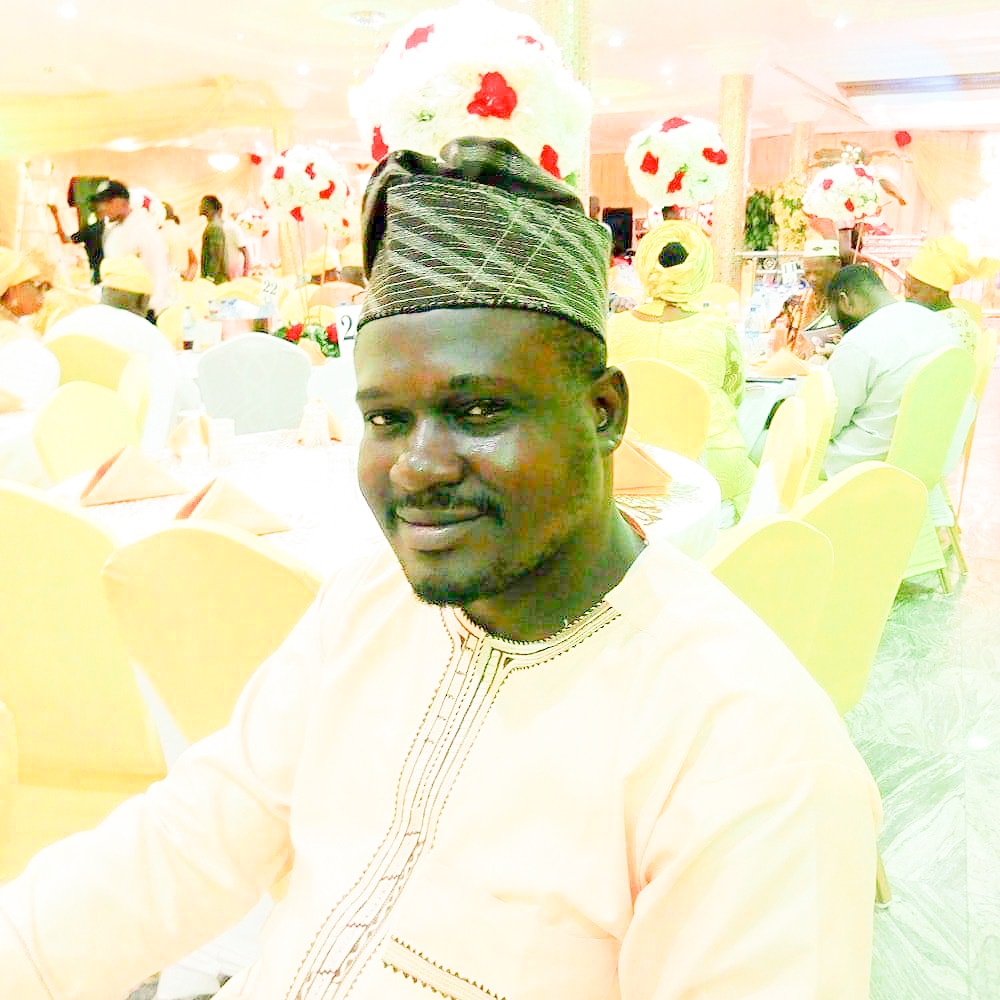
THE TEXT OF THE LECTURE DELIVERED BY RAHEEM HAMEED AT HANDING OVER CEREMONY OF MUSLIM COPPERS ASSOCIATION OF NIGERIA (MCAN), OYO CHAPTER ON 13TH RAJAAB 1433AH (3RD JUNE 2012) AT COPPERS’ LODGE, OWODE, OYO, OYO STATE, NIGERIA.
DIAGONISIS
The concept of leadership in Islam beyond the view of the person who is in the helms of affairs of the state, we are all leaders. This can be understood in line with the hadith of Rasulullah (SAW) which says “you are all Shepard, and you shall all be asked on the flocks you Shepard…”
The issue of leadership and followership can be viewed from different perspective; matrimonial, organizational, community, godfatherism e.t.c. It will be wrong if we jump into conclusion that the system of being a leadership is the same in all the sphere we observed above. But due to time factor, I will rather prefer to narrow my discussion to:
The concept of leadership in Islam
The nature of followers, Islamic perspective
Leadership making decision, a great task
Leadership political skills
Personal Sense of Responsibility
When things want to fall apart
I believe that in the cause of discussing the above stated point, I might have touched all the expected area, God willing.
THE CONCEPT OF LEADERSHIP IN ISLAM
THE LOST COMPASS
The death of Uthman bin Hanffan marked the beginning of new tussle in Islam. Things greatly fall apart. Muslims were at war and factionalism came on the ground wearing the gown of law. The issue of Sunni/ Shia was vested and the blood of the great companions started to flow.
When Umar bn Abdul Azeez came on the field to repositioned the leadership style so that blood shed will become thing of past, those that ought to be his godfathers had tasted the sweetness on the seat of leadership and they fail to compromise with bn Abdul Azeez idea. On this fact bn Abdul Azeez was poisoned and more confusion eroded the Muslim world.
Since then, the case of Sunni/ Shia, the North Arabia (bn Adnan) and the south Arabia (bn Qahtan), the Abbasid and the Umayyad became a great contending idea in Islam. Studying this case properly, it seems to be nothing than ethnic politics or what may be better called cultural politics. In a nutshell, the Muslims since then have lost their compass of leadership in Islam.
It is not the nature of Islam that its followers should be seeking for post. This could be well understood when General Charles curtailed his Christian followers to keep on watching the Muslim as they were conquering their lands. He said:
“If you follow my advice, you will not interrupt their match nor precipitate attack. They are like torrent carrying all before it. They are in the advent of their victory; their determination replaces for them the superiority of numbers and hearts which replace the defense of shields. But give them time to be loaded with spoils, settle down and to fight among themselves for authority, then you will easily defeat them.”
THE UNDERSTANDING
All Muslims are leaders. It is Allah (SWT) who made us to be. كُنتُمْ خَيْرَ أُمَّةٍ أُخْرِجَتْ لِلنَّاسِ
If we all believe that “we (Muslims) are the best ever evolved for mankind” and work towards being the best, then we are born leaders.
LEADING THE PUBLIC
The post of leadership as the head of public affairs is a burden, a great responsibility which requires serious sacrifice and therefore must not be sought for. However, if we are appointed to lead, then we should accept the post with the fear of Allah and seek His guidance. This is in line with the statement of Rasulullah (SAW) as reported by Abdullah ibn A’mru
“It is not Halaal for any three of you to be in a deserted place without appointing one Amir” (Ahmad)
To be a leader does not make one to be special or extra supreme being. You are still how you are. Let us learn from the speech of Umar bn khattab-
“O Muslims, I am not a king that it should be my desire to make you slaves. I am myself a servant of Allah, though the responsibilities of the caliphate have been made to be heavy upon my head. I should deem myself fortunate if I serve you in a manner that secured your sound and tranquil sleep in your homes, but I would be a miserable wretch if it were my desire to make you wait constantly at my doors. It is my object to instruct you not only by words, but by my deeds also”
This shows that the post of leadership does not make a Muslim greater or better than his brother or sister. Rather, he has been made to saddle the responsibilities of those who are leaders like him. His appointment only made him double capped the cap of leadership.
Being a leader of other Muslims or general public, it is must for such a Muslim to show sincere concern for their affairs.
Ma’qil bn Yassar (RA) said that he heard the Prophet (SAW) saying:
“Any man who Allah has given the authority of ruling some people and he does look after them in an honest manner, will never have even the smell of Paradise.” (Bukhari)
“If any ruler having the authority to rule Muslim subjects dies while he is deceiving them, Allah will forbid Paradise for him”
TRAINING THE LEADERS
This is the style Prophet Muhammad adopted in building the nation. The graduate of this training are those Sayed Qutb referred to as The Qur’anic Generation. These Muslims were trained in Daru Arqam bn Arqam. These Muslims were individuals who were leaders everywhere they go. Looking at Rabia bn Amr in the Palace of Rustam, the Commander-in-Chief of Iran. Readying to receive him, Rustam received him in a well decorated hall, wore a crown and robes which sparkled with gems, sat on a throne; eager to welcome the (taught) Muslim chief. As Rabia appeared to him, Rustam asked:
“Are you the chief of the Muslims?” Rabia (RA) replied, “No I am an ordinary soldier. But each one of us, even the most ordinary can speak on behalf of the most powerful person, and every person has full power in every matter”
The failure of many leaders is that they found themselves on the stage of leading without preparing for it.
THE NATURE OF FOLLOWERS
Having known that all Muslims are leaders and being given the opportunity to lead them is not a pride but a burden. For him to lead them successfully, he needs to understand the nature of his co-brothers. This will assist him to manage his followers. Some nature will be highlighted;
No two individuals are equal. This is the idea of ‘studying individual differences’ you will have some followers who are sluggish where they ought to be fast, and those who are too fast where they ought to slow
‘But, Amir, I can’t do without committing sin’. This is not a new concept, it happened during the period of Rasulullah (SAW) as a companion came to him and requested from him permission to commit zina, the Prophet only use technical no how style to save him from committing the sin by asking if he has mother or sister. As he responded in affirmative, the prophet asked him if he would like that someone should commit zina with his mother or sister. With rejection voice, he said that he would kill him. Then the Prophet made him realized that the person he wished to commit zina with is someone’s mother or sister.
‘My door is open’. Your followers will wish you to visit them. This is why leadership cannot be isolated from the society. You are from your people, you are appointed to lead them and you must be with them all the time. Consider Umar’s regime for instance; he will tour the house of his followers late in the night in order to know those feeling hungry, those who have missed their husbands, and those who are planning to cheat the masses. Go to the house of your people, eat with them, give them gift, have your siesta in their room, stay in their room overnight (if they invite you for that), felicitate with them and show your condolence to them.
“You are too harsh” If you shout on your followers, reject their suggestion, maintain strict principle, and remain a rigid block which allows no idea to flow, your followers will declare that you are too harsh, nay, too wicked or selfish leader. You need to show genuine concern on the welfarism of your followers. Listen to their complaints and accept their view where necessary (even if you will not make use of it), give them excuse, and be dynamic in dealing with them. Remember when Rasulullah (SAW) was adjusting the lines of his followers with stick and a man with big belly was struck unknowingly, as he complained, the Prophet (SAW) gave him stick to strike his own back. Likewise when Umar was delivering sermon on Jummah and a woman corrected him on the issue of dowry.
‘Let us try’. Never make them bench warmer. Let them try their best. Even, you know that they may not succeed in what they want to try but still give them the chance. On the page of history, the Muslims were about to evade Ta’if but they found the encounter very tough. Rasulullah (SAW) then decided to raise the siege. Some of the companion voiced out unsatisfactorily that “shall we go back without reducing Ta’if?’. Rasulullah (SAW) answered them thus “Alright, mount an attack.” In continuation of the story, Abul Hassan Ali Nadwi writes “They bored down on the enemy but were repelled with losses. Then the Apostle said, “Allah willing, we shall return very soon.” The people felt relieved and started making preparations for breaking the camp. The Prophet (SAW) smiled when he saw them returning.”
LEADERSHIP MAKING DECISION, A GREAT TASK
LET’S PLAY PUZZLE
The Amir and other five Coppers are travelling to a state for a conference. The journey will take them forty-eight hours without stopping. Around 1a.m., the car suddenly develops a fault and stop accelerating. Luckily, one of the Coppers is a mechanical engineer. He put off his clothe, sleep under the car and solute the problem. After fixing what went wrong, the car can only carry three Coppers. This shows that three Coppers will need to put their lasting fate in the tick bush where there is no vehicle moving and no network on the GSMs. Let us review the list of the Coppers:
The Amir,
The Engineer that repairs the car,
The scholar who will deliver lecture where they are going,
The only child of the landlord of their lodge,
Amira
The Director of the journey, who only knows the destination
Who shall we agree to stay in the tick bush for hopeless hope? No doubt, the leadership making decision is not an easy task.
For Amir to take a precise decision, he needs the following machinery;
Executive Council who he will need to consult with. They will generate ideas on issues and he followed the one seems the best. You can see prophet Muhammad consulting a party of companions after Gazwatu Badr in order to decide the fate of the war captives
Work with Experts. You cannot be expert in all. A war expert offered Rasulullah (SAW) an advice to make the well be in the side of the Muslim so that the kufar will be denied the right to drink. Salman Farsi bailed the Muslims from the fear of Gazwatu Khandak as he gave the advice to dig the trenches across Madeenah.
Pay good attention to speech. A good leader is said to be a good listener. He is fast in hearing and deciphers the message but he is slow and measured in response. We can see this style in Rasulullah (SAW) on the case of Abdullah bn Ubayy bn Salul the chief hypocrite when he revealed his hypocrisy. Different advice came on board for Rasulullah (SAW). Even Umar bn Khattab was of the opinion that the chief hypocrite should be beheaded. In a measured and deciphered way, Rasulullah replied Umar “O Umar, what would the people think if they heard that Muhammad had begun to kill his own companions.”
LEADERSHIP POLITICAL SKILL
Islam is a dynamic religion. Likewise, the leader must be dynamic in Islam. Political Islam is nothing but dynamism in nature and sincerity in speech. It is the skill of dynamism that you will use in making your people loves you, and your sincerity will make them have faith in you. You can see a case where two young boys killed Abu Jahl and started arguing saying “I am the one who killed him”. Rasulullah (SAW) called the two and requested for their swords. As he saw their sword, he pronounced “You killed him both”. Give your followers hope as Prophet Muhammad (SAW) gave his companions hope in the course of digging the trench in Gazwatu Khandak that ‘As I break this rock so Allah will break the throne of Kisra’
PERSONAL SENSE OF RESPONSIBILITY
This is to the followers. A good follower will not enjoy criticism, complaining, blaming, and nagging. He will prefer to move on field. This is why Hassan Al-Bana told his followers that ‘Nahnu amaaliyuun’ (We are action oriented fellow). Criticism and nagging is always from those who are idle and lazy followers; they never see things right, they never support the leader, they never protect their leader, they are not patriotic enough to their Ummah, they are busy body in carrying rumours and tails about what the leader do wrong. Being a follower does not say that you don’t have duties to discharge to your leaders. Hanzallah, a new couple rose from his wife in order to protect the Prophet at Gazwatu Hud and eventually paid his soul to sustain that of Muhammad (SAW). Reason to the Hadith reported by Huzaifa from rasulullah:
“He who is not concerned about the affairs of Muslims is not of them” (Tabrani)
Rasulullah (SAW) said that Qa’qa bn Amr is equal to a thousand men because of his personal sense of responsibility to the mission of Islam. Rasulullah asked him ‘What have you prepared for this mission?’ he replied ‘I have made ready strong will and determination, a sharp sword and a fast horse.’
WHEN THINGS WANT TO FALL APART
Umar bn Khatab (RA) said:
“There is no Islam without Jama’ah and there is no Jama’ah without leadership (Imaarah), and there is no leadership without obedience.”
But there are times that there will be quarrel between leaders and followers, and things will tend to fall apart. Such as the case of Rasulullah (SAW) and his followers during the treaty of Hudaybiyyah. The next thing is not to crucify your followers or tag them that they have no faith. What ought to happen is that you resolve the conflict amicably. It is said that ‘Without conflict, there cannot be resolution’. Conflict is natural between the leaders and followers. It occurs every-time and everywhere. It happened between the Prophet and his companions. It happened between the companions and the four Khulafaau Rashiduun.
The best way of resolving the conflict is that we should all know that the Ummah or Jamaah is for all and we will have to give the account of our living in this Ummah to Allah. Due to this, there should be room for dialogue in solving the conflict. There should be a panel or committee who will be handling the case of crises and conflict. It should be noted that there is no immunity in Islam. The leader has the right to sue and to be sued.
The judge should just be wise in making his decision. There are times that the judgment will be a win-lose resolution, lose-win resolution, win-win resolution, lose-lose resolution, e.t.c.
IN CONCLUSION
It is important to note that a person who is not a good follower cannot and never be a good leader. We shall all give account to Allah on our effort to bring total peace to the world and our effort in returning Islamic system of government. Mariam Jemilla (formerly known as Margret Marcus) said: “No man will quit the presence of Allah without answering the following questions;
On what position do you meet Islam?
What is your contribution to it?
On what position do you leave Islam
Wa salaam alaikum wa rahmatullah wa barakatuh.
BOOKS FOR FURTHER READING
– Ar-Raheeq Al-Makhtoum (The Pure Nectar) A Treaties on Prophet Muhammad’s Biography, Safeyy Ar-Rahman Al-Mubarakpury, Al-I’lm Bookstore, Nigeria.
– Collective Consciousness (2009), Abu Umar Al-Faruq, Salsabil Associates, Akoka, Lagos
– Islam and the World(1961), S. Abul Hassan Ali Nadwi, Al-Fathi Publication, Oshodi, Lagos
– Leadership for the Mission at the cradle (2009), Abu Umar Al-Faruq, Salsabil Associates, Akoka, Lagos
– Lessons from Our History (2009), Abu Umar Al-Faruq, Salsabil Associates, Akoka, Lagos
– Muhammad Rasulullah (The Life of Prophet Muhammad) (1979), S. Abul Hassan Ali Nadwi, Academy of Islamic Research and Publications, Lucknow, India
– Personal Sense of Responsibility (2007), Abu Umar Al-Faruq, Salsabil associates, Akoka, Lagos
– Problems Faced by the Da’wah and Da’iyah, Fathi yakan, Hasbunallah Islamic Books, Offa, Kwara State
– The Prophet Muhammad Mustafa the Elect (SAW) (2011), Erkam Publication, Istanbul, Turkey




